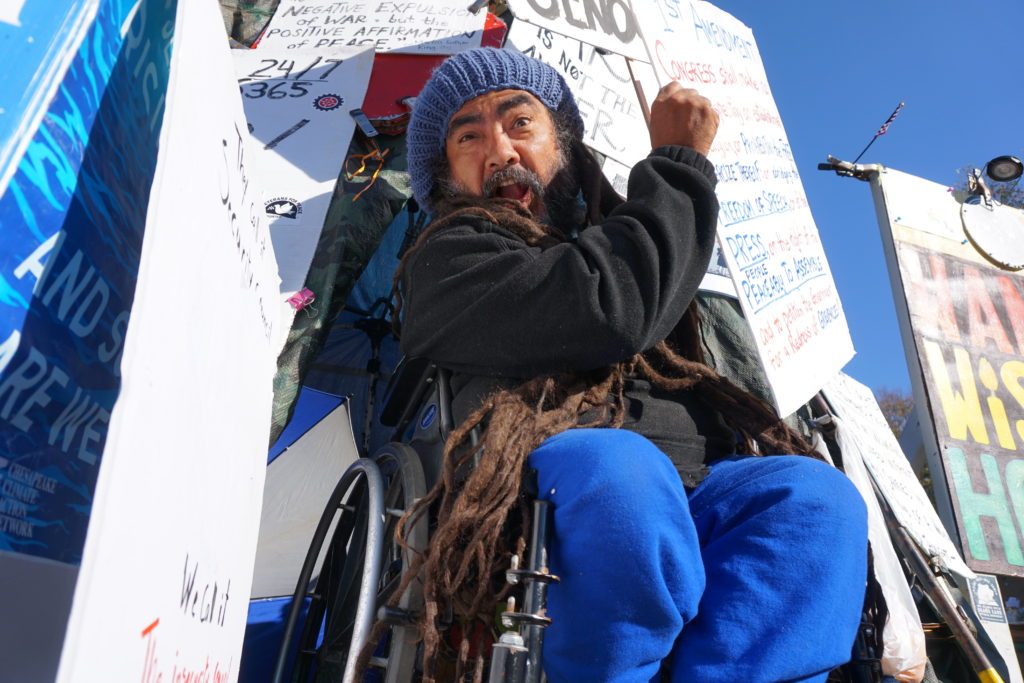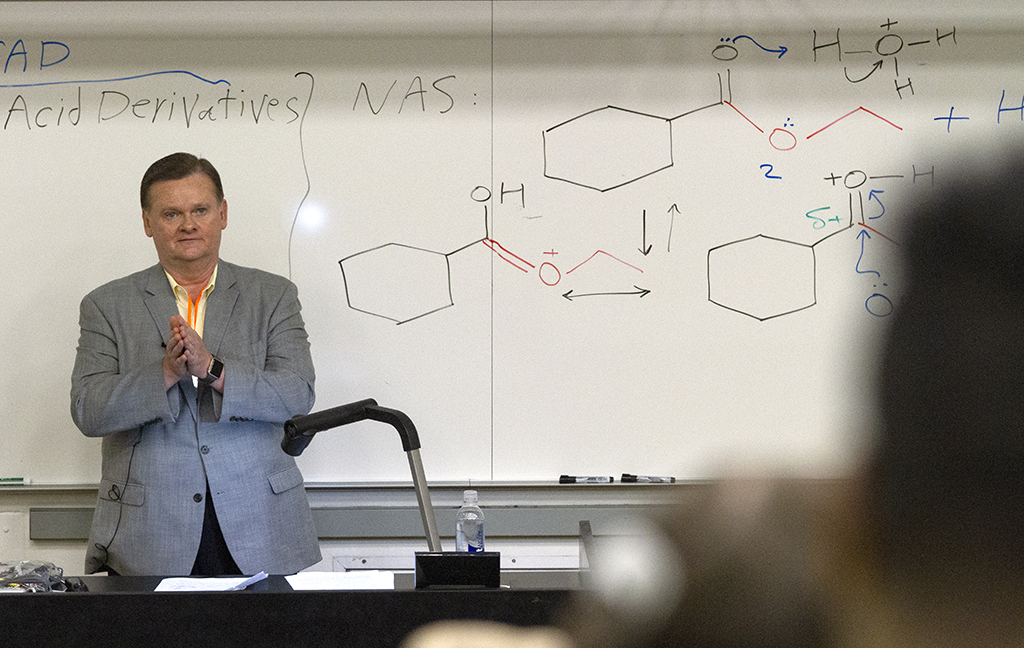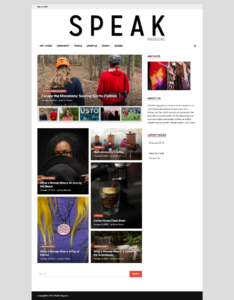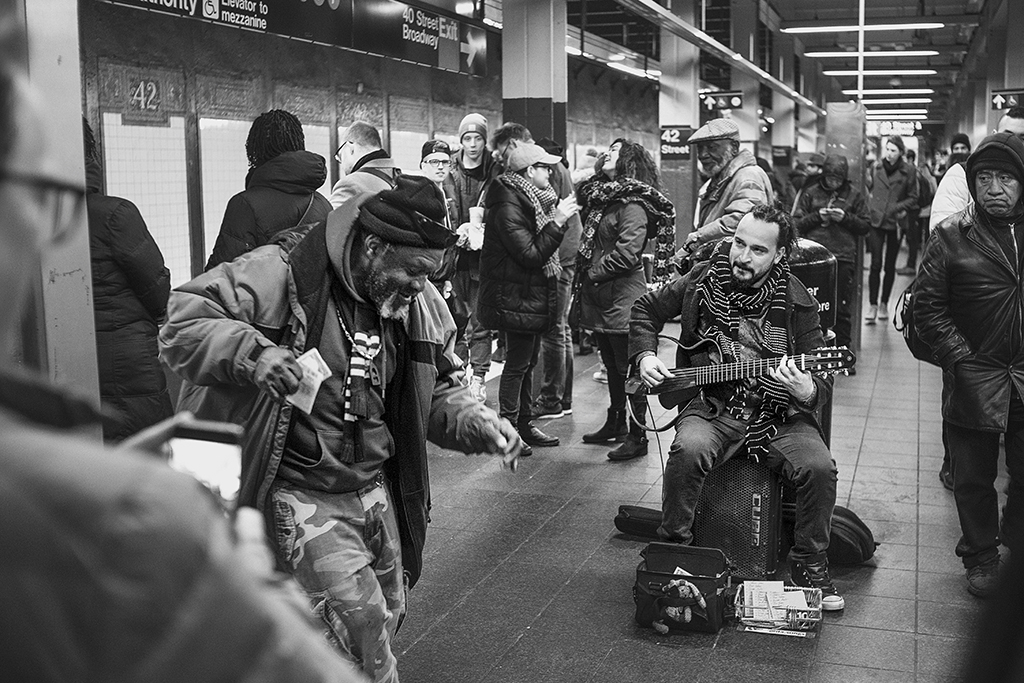‘Empathy to the forefront’
By Christine Bartruff
University of South Carolina Honors College
A chemical smell. A haze in the air. Broken windows. Abandoned jugs of milk. Through the eyes of a reporter, this was the scene in Minneapolis following protests against police brutality sparked by the killing of George Floyd.
 Erin Ailworth, Midwest correspondent for The Wall Street Journal, spoke to students via Google Hangouts while she was on the ground in Minneapolis. Ailworth is well-versed in covering heavy subject matter. She’s been The Wall Street Journal’s go-to disaster reporter since 2017, reporting on hurricanes, wildfires and, most recently, protests.
Erin Ailworth, Midwest correspondent for The Wall Street Journal, spoke to students via Google Hangouts while she was on the ground in Minneapolis. Ailworth is well-versed in covering heavy subject matter. She’s been The Wall Street Journal’s go-to disaster reporter since 2017, reporting on hurricanes, wildfires and, most recently, protests.
READ AILWORTH’S STORIES
IN THE WALL STREET JOURNAL
When interviewing people, especially those who are traumatized by the events she’s covering, Ailworth exercises empathy. Approach people gently, she said, without shoving a camera or notebook or recording device in their face. Start with introducing yourself, and then ask if they would be willing to talk with you. Continue reading “Navigating disasters and tragedy as a journalist “
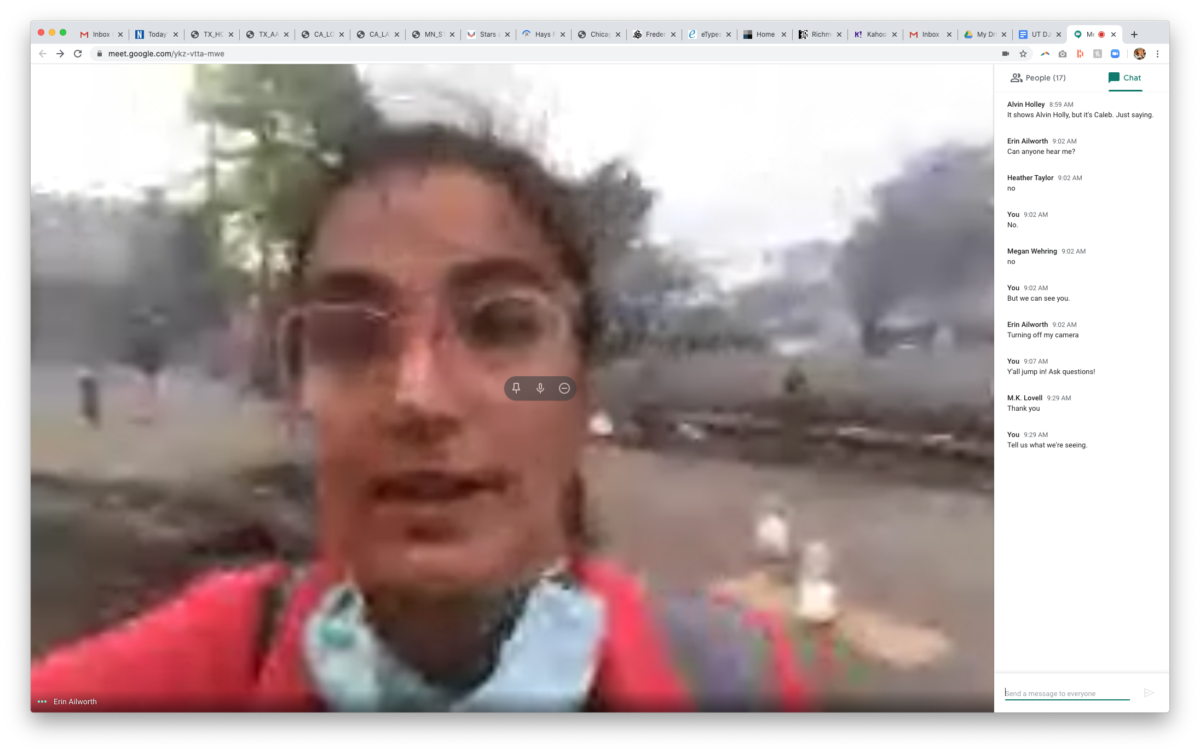
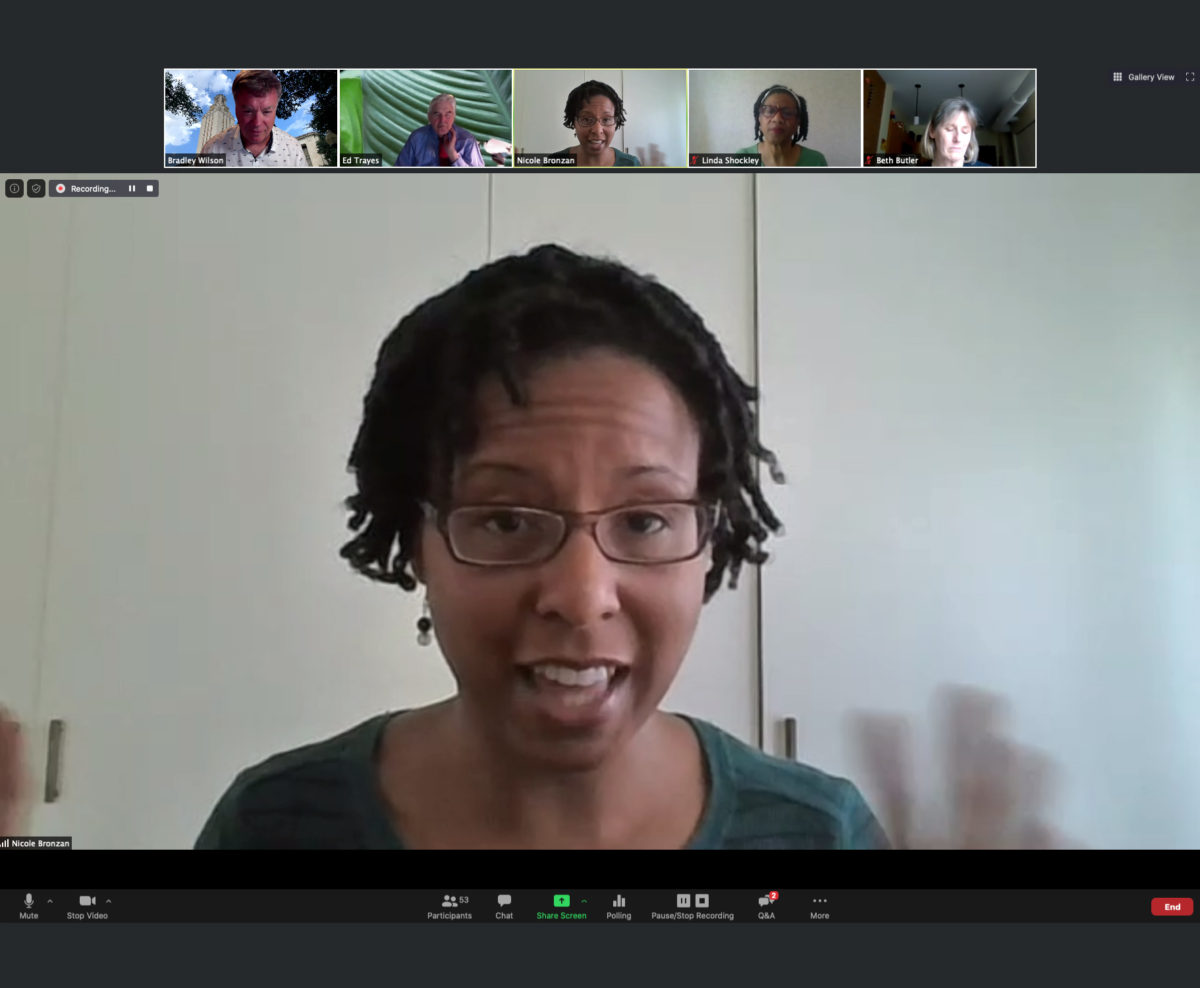
 Using a health equity lens to cover COVID-19 in minority communities
Using a health equity lens to cover COVID-19 in minority communities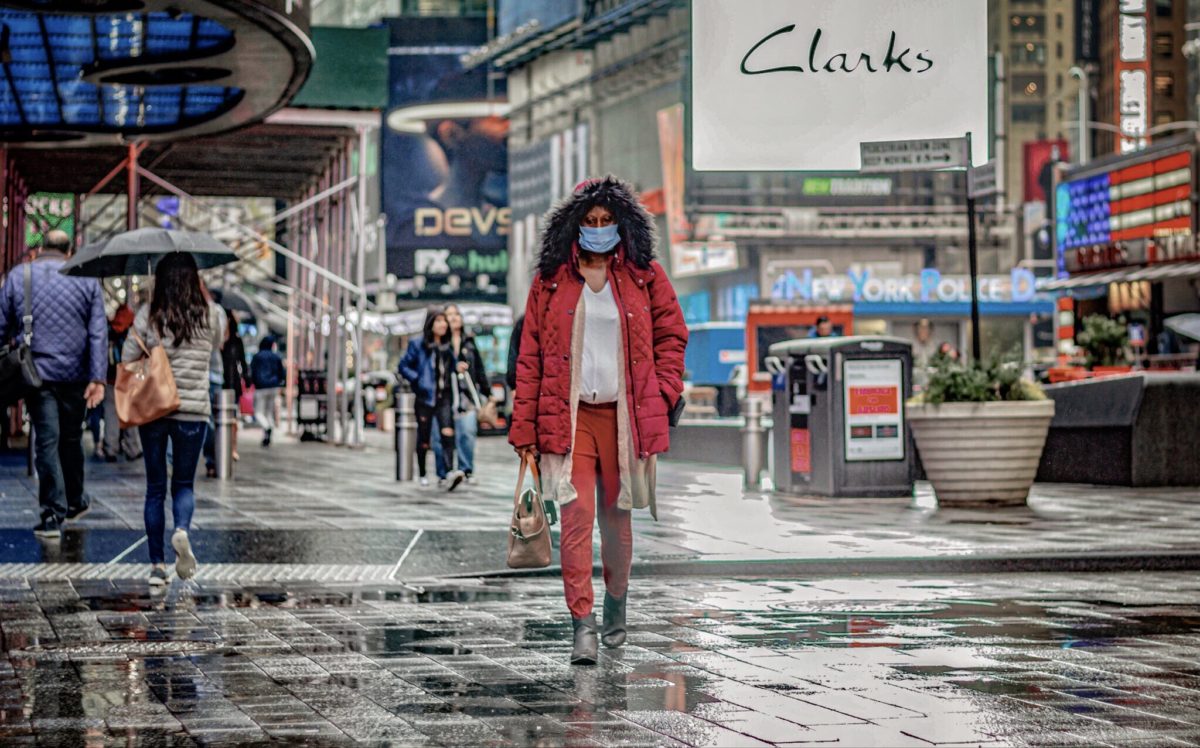
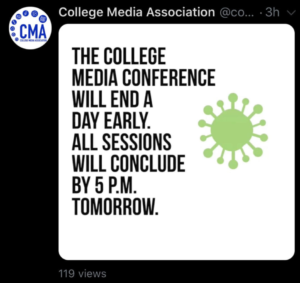 Under the guidance announced by Cuomo, most gatherings of more than 500 people were banned, including the College Media Association conference.
Under the guidance announced by Cuomo, most gatherings of more than 500 people were banned, including the College Media Association conference.
